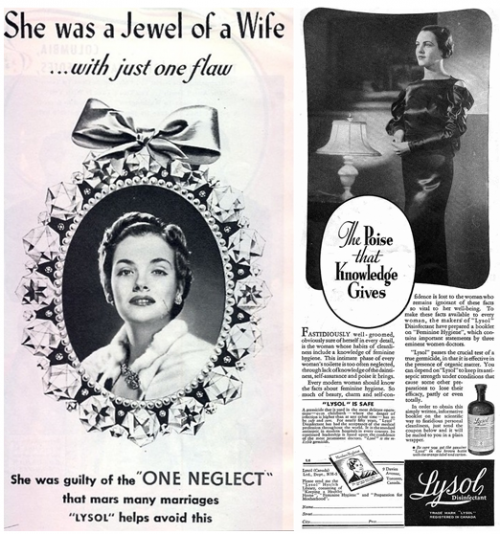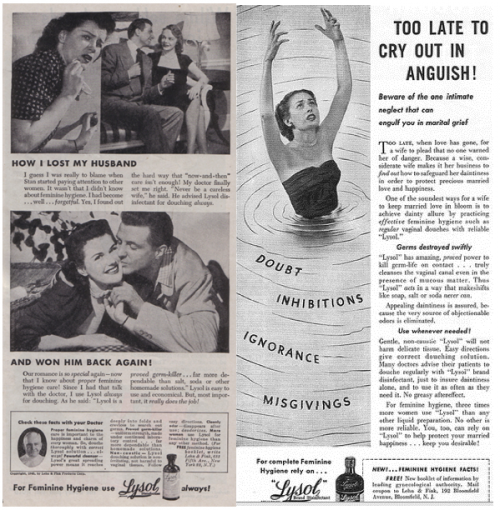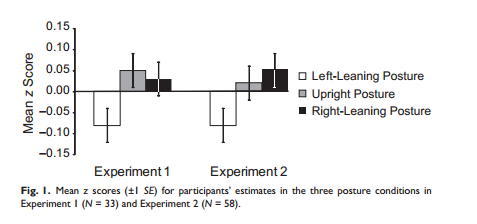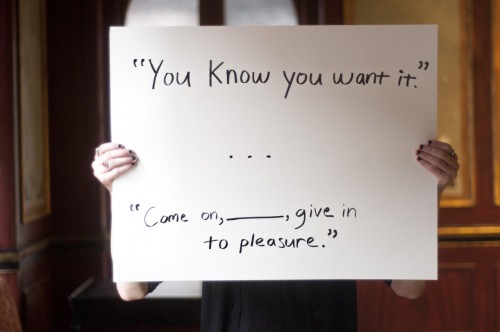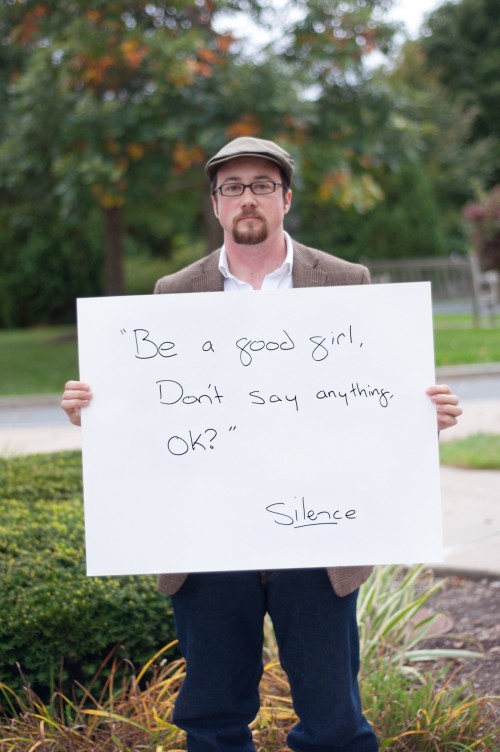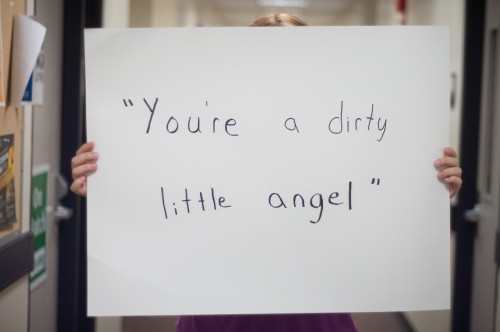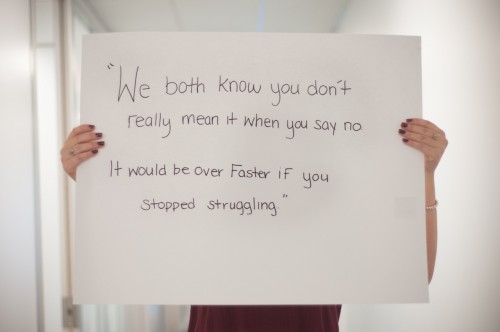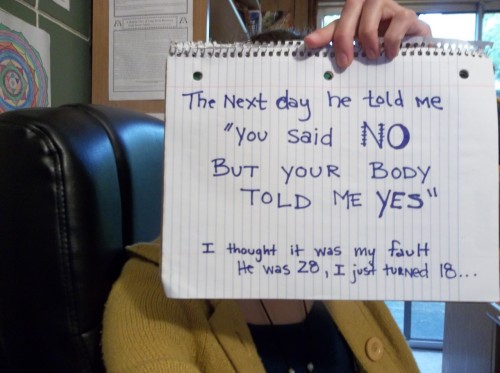Every once in a while the internet is abuzz being horrified by vintage ads for Lysol brand douche. The ads seem to suggest that women are repulsing their husbands with odorous vaginas caused by neglected feminine hygiene. In fact, it only looks like this to us today because we don’t know the secret code.
These ads aren’t frightening women into thinking their genitals smell badly. According to historian Andrea Tone, “feminine hygiene” was a euphemism. Birth control was illegal in the U.S. until 1965 (for married couples) and 1972 (for single people). These Lysol ads are actually for contraception. The campaign made Lysol the best-selling method of contraception during the Great Depression.
Of course, we’re not wrong to be horrified today. Lysol was incredibly corrosive to the vagina; in fact, it’s recipe was significantly more dangerous than the one used today. Hundreds of people died from exposure to Lysol, including women who were using it to kill sperm. It was also, to add insult to injury, wholly ineffective as a contraceptive.
Here’s to safe, legal, effective contraception for all.
Via Buzzfeed and @CreativeTweets.
Lisa Wade, PhD is an Associate Professor at Tulane University. She is the author of American Hookup, a book about college sexual culture; a textbook about gender; and a forthcoming introductory text: Terrible Magnificent Sociology. You can follow her on Twitter and Instagram.

